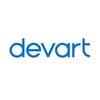"Laravel CRM" refers to a Customer Relationship Management (CRM) system developed using the Laravel PHP framework. Laravel is a popular open-source PHP framework known for its elegance, simplicity, and expressive syntax. When developers build a CRM using Laravel, they leverage its features and ecosystem to create a robust and customizable solution tailored for managing customer relationships.
Key characteristics of a Laravel-based CRM include:
1. Modularity and Extensibility: Laravel's modular architecture allows developers to extend and customize the CRM system according to specific business requirements. This modularity simplifies the addition of new features, such as lead management, customer tracking, task management, and reporting.
2. Eloquent ORM: Laravel's built-in ORM (Object-Relational Mapping) called Eloquent simplifies database interactions by allowing developers to work with database tables using PHP syntax. This feature makes it easier to manage customer data, relationships, and queries within the CRM.
3. Blade Templating Engine: Laravel's Blade templating engine enables developers to create dynamic, reusable views for the CRM's front end. Blade templates facilitate clean and organized HTML rendering, enhancing the user interface and experience.
4. Authentication and Security: Laravel provides robust authentication mechanisms out of the box, including secure user authentication, authorization, and session management. This ensures that customer data stored in the CRM remains protected and accessible only to authorized users.
5. RESTful API Development: Laravel simplifies the development of RESTful APIs, which can be integrated with other applications and services. This allows the CRM to communicate and exchange data with external systems, enhancing its interoperability.
6. Testing and Debugging: Laravel's built-in testing capabilities facilitate the implementation of automated tests to ensure the stability and reliability of the CRM application. This helps identify and fix issues efficiently during the development lifecycle.
7. Community and Ecosystem: Laravel benefits from a vibrant developer community and a rich ecosystem of packages and resources. Developers can leverage Laravel's ecosystem to accelerate CRM development and access tools for deployment, monitoring, and maintenance.
In summary, a "Laravel CRM" combines the robust features of the Laravel framework with CRM functionalities to provide businesses with a flexible, scalable, and secure platform for managing customer relationships and improving business processes.






Top comments (0)